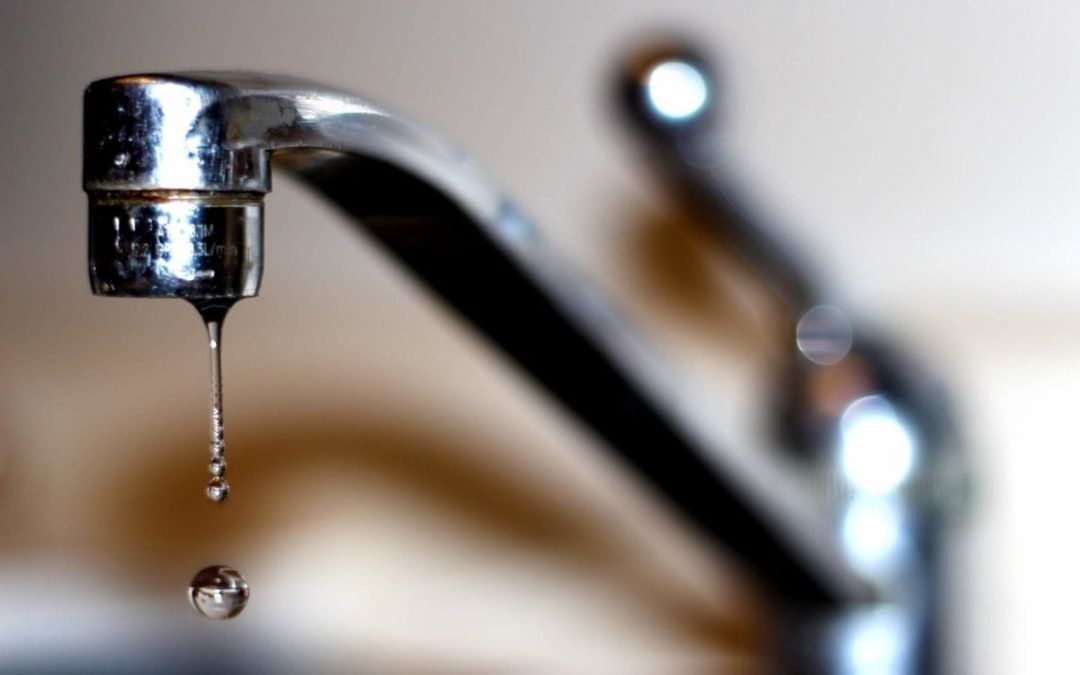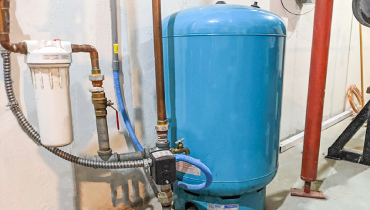We've unearthed this post involving 10 Reasons for Low Water Pressure in Your House directly below on the internet and felt it made sense to talk about it with you here.

Low water stress in your home can be a discouraging problem, impacting every little thing from showering to washing dishes. If you're experiencing weak water flow, there are a number of feasible causes and remedies to explore. In this overview, we'll go over usual factors for low tide pressure and useful actions to resolve the issue efficiently.
Intro to Low Water Stress
Low tide stress happens when the circulation of water from your taps, showers, and other fixtures is weaker than common. This can make everyday tasks extra challenging and less effective. Recognizing the root causes of low water pressure is vital to locating the best service.
Common Root Causes Of Low Water Pressure
Pipeline Obstructions
Gradually, pipelines can end up being blocked with mineral deposits, debris, or particles, restricting the circulation of water. This is an usual issue in older homes with galvanized steel pipes.
Deterioration
Corrosion within pipes can cause leaks and reduced water stress. Rust buildup can constrict water circulation, particularly in aging plumbing systems.
Faulty Stress Regulators
Pressure regulatory authorities are responsible for keeping consistent water pressure in your home. If they malfunction, it can result in low water stress or irregular circulation throughout the house.
Metropolitan Water Supply Issues
Occasionally, the problem lies outside your home. Community supply of water problems, such as main line leakages or maintenance job, can momentarily lower water stress in your location.
Exactly How to Detect Low Tide Stress
Inspecting Faucets and Fixtures
Beginning by testing the water stress at different taps and fixtures throughout your home. If the concern is isolated to particular locations, it may show localized troubles.
Checking Pipelines
Inspect noticeable pipes for indications of leakages, rust, or obstructions. Take note of any kind of unusual audios, such as banging or rattling pipes, which could indicate issues within the plumbing system.
Consulting with a Plumber
If you're unable to determine the reason for low water stress, think about hiring a professional plumber to carry out a comprehensive examination. They can recognize underlying problems and suggest appropriate solutions.
DIY Solutions to Take Care Of Low Water Pressure
Cleaning Aerators and Showerheads
Natural resources can collect in aerators and showerheads, minimizing water flow. Eliminate and cleanse these components on a regular basis to improve water pressure.
Flushing Water Heater
Sediment buildup in the hot water heater can limit circulation and lower efficiency. Flushing the container periodically helps get rid of sediment and maintain ideal efficiency.
Examining Pressure Regulatory Authority
Guarantee that the stress regulator is operating properly. Changing or replacing the regulatory authority can help recover correct water pressure throughout your home.
Clearing Clogs in Water Lines
For minor obstructions, try utilizing a plumbing snake or chemical drain cleaner to clear blockages in pipelines. Be cautious when making use of chemicals and adhere to security standards.
When to Call an Expert Plumber
If do it yourself efforts fall short to settle the problem or if you think considerable plumbing troubles, it's finest to seek assistance from a qualified plumber. They have the knowledge and devices to resolve intricate concerns securely and properly.
Safety Nets to Keep Water Pressure
Routine Upkeep
Set up routine upkeep for your plumbing system to avoid problems such as corrosion, leakages, and clogs. Dealing with small problems early can help avoid even more substantial repairs in the future.
Installing a Pressure Booster
Think about setting up a stress booster pump to enhance water stress in areas with consistently reduced circulation. This can be especially advantageous for multi-story homes or buildings with high-demand components.
Surveillance Water Use
Bear in mind water usage practices and prevent overtaxing the plumbing system. Simple changes, such as shocking showers and washing loads, can help preserve adequate water stress.
Conclusion
Handling low water pressure can be aggravating, but determining the underlying reasons and implementing appropriate solutions can bring back ideal circulation throughout your home. Whether it's cleaning aerators, examining pipes, or speaking with a plumber, taking proactive steps can make sure a stable supply of water for your everyday requirements.
How to Fix Low Water Pressure In Your Home
Municipal Water Supply Issues
Scheduled maintenance, high demand, and water main breaks are all potential causes for low water pressure within a city or county’s water lines. While there’s not much you can do to personally fix a problem with your city or county’s water supply system, you can play a big role in documenting the issue and alerting those who can.
How to fix it:
Ask your neighbors if they are experiencing any issues with low water pressure. If multiple homes are affected, it’s likely related to the city’s water line.
Contact the local Water Authority to see if there is any maintenance taking place that might be affecting your supply. Also let them know of your specific issues. If other homeowners report the same issues, they’ll know that there could be a larger issue to look into.
Faulty Fixtures
A damaged or clogged shower head, faucet or appliance is the first thing we’d suggest checking, especially if low water pressure appears to be isolated to a specific area of your home.
How to fix it:
First, turn off the main water supply to your home.
Check the affected appliances for build-up or debris. In the case of a faucet, you can simply unscrew the aerator at the tip of the faucet. Showerheads should be fully detached from the water pipe.
While the appliances are detached, you may want to check the water supply to determine if the fixtures were in fact the issue.
To clean, soak the showerhead or aerator in vinegar and brush off any visible debris.
Reattach the fixtures and check the water pressure again. If it is still low, there is likely a deeper issue at hand, which can be determined by a professional plumber.
Pipe Obstructions
Mineral deposits, rust or other debris within water pipes can lead to blockages or corrosion over time.
How to fix it:
When you think of a clog, you probably think of a drain clog. While there are many DIY solutions to clearing a drain, clogs in a water pipe will almost always require the help of a professional plumber. A plumber will be able to locate the affected pipe and clean out any debris or mineral deposit buildup. In severe cases, the pipe may need to be replaced. Your plumber might also recommend a water softening system to remove the minerals from your home’s water supply that can contribute to pipe blockages over time.
Plumbing Leak
Undetected water line leaks can divert water away from your residential pipes, reducing the water pressure in your fixtures.
How to fix it:
Check your water meter by turning off all water sources and monitoring the meter for any movement, which could be a clear indicator of a potential leak.
Check all visible pipes for signs of leaking, including water stains, active dripping or damp spots around the pipe.
Inspect fixtures, including faucets and showerheads, for any drips.
Test the pressure but recording the pressure with the main water valve shut off. Leave off for a few hours and test again. A significant drop in pressure is a clear sign of a leak.
https://kiddcoplumbing.com/plumbing-blog/how-to-fix-low-water-pressure/

How to Fix Low Water Pressure In Your Home
Municipal Water Supply Issues
Scheduled maintenance, high demand, and water main breaks are all potential causes for low water pressure within a city or county’s water lines. While there’s not much you can do to personally fix a problem with your city or county’s water supply system, you can play a big role in documenting the issue and alerting those who can.
How to fix it:
Faulty Fixtures
A damaged or clogged shower head, faucet or appliance is the first thing we’d suggest checking, especially if low water pressure appears to be isolated to a specific area of your home.
How to fix it:
Pipe Obstructions
Mineral deposits, rust or other debris within water pipes can lead to blockages or corrosion over time.
How to fix it:
When you think of a clog, you probably think of a drain clog. While there are many DIY solutions to clearing a drain, clogs in a water pipe will almost always require the help of a professional plumber. A plumber will be able to locate the affected pipe and clean out any debris or mineral deposit buildup. In severe cases, the pipe may need to be replaced. Your plumber might also recommend a water softening system to remove the minerals from your home’s water supply that can contribute to pipe blockages over time.
Plumbing Leak
Undetected water line leaks can divert water away from your residential pipes, reducing the water pressure in your fixtures.
How to fix it:
https://kiddcoplumbing.com/plumbing-blog/how-to-fix-low-water-pressure/
As an enthusiastic reader about Dealing with Low Water Pressure in Your Home, I imagined sharing that excerpt was sensible. Do you know about someone else who is sincerely interested in the niche? Be sure promote it. Thank-you for your time spent reading it.
Information Here